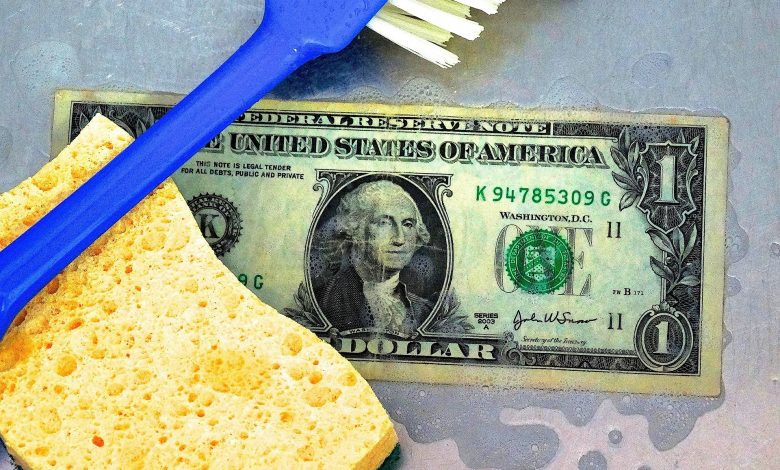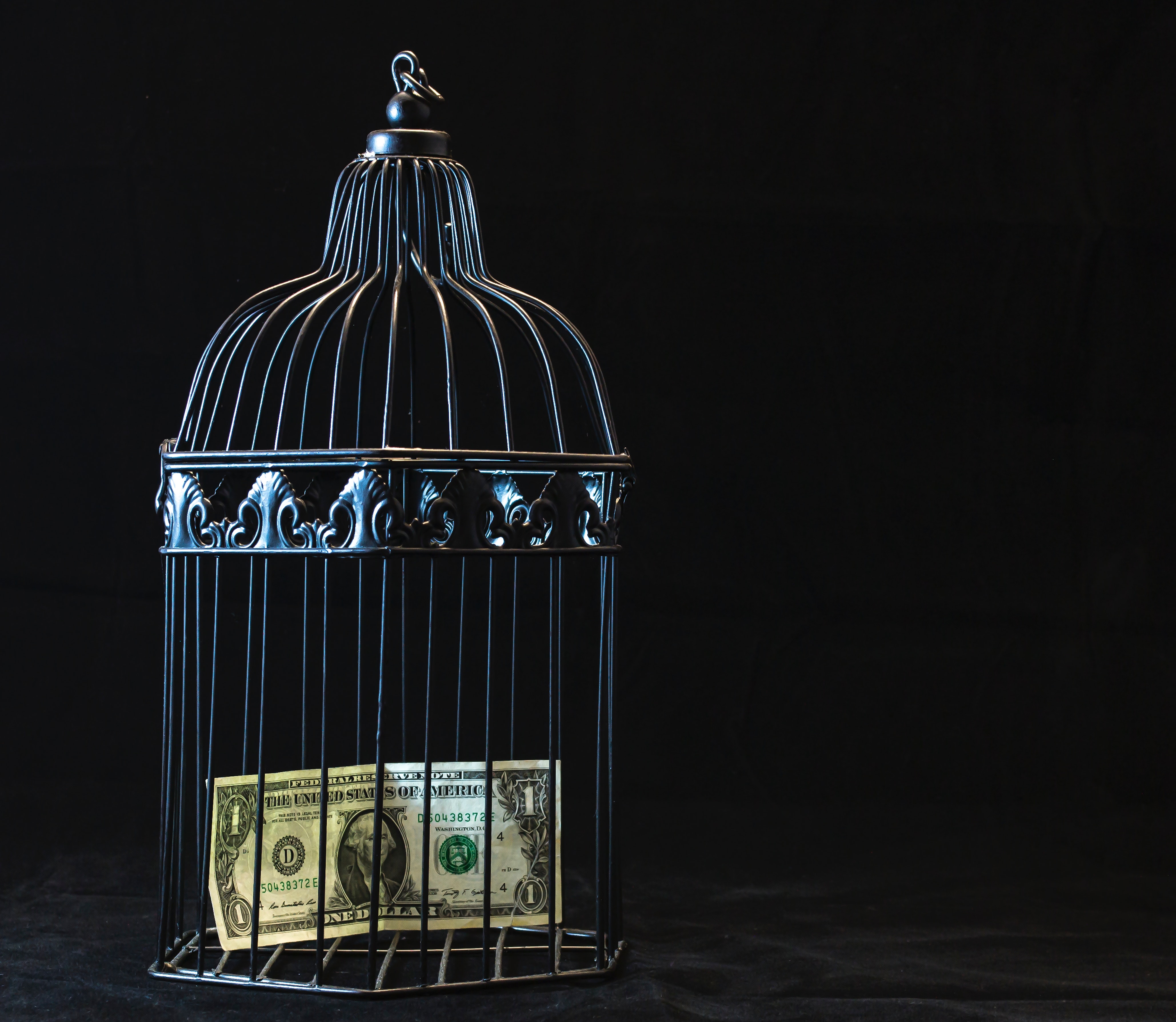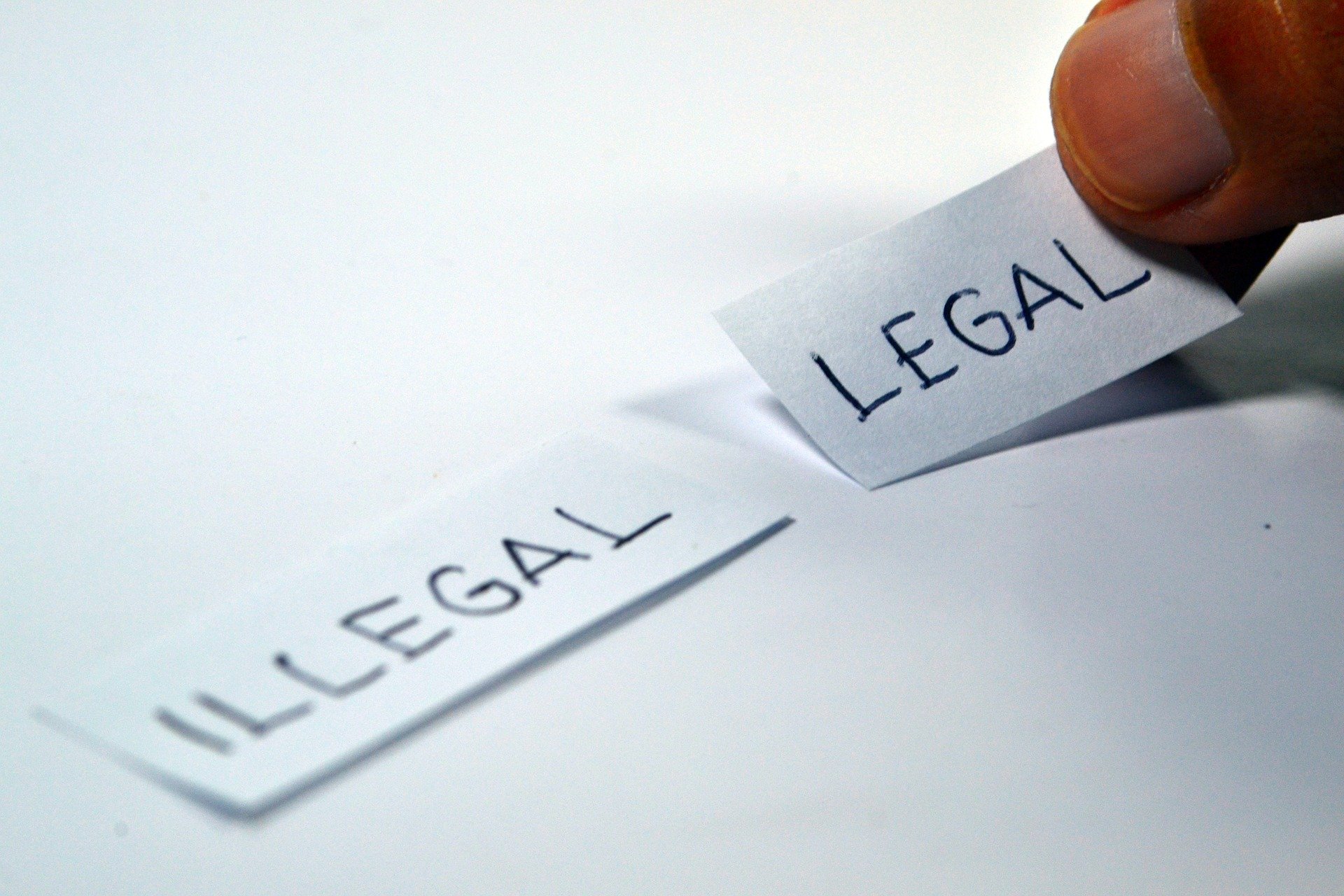What You Need to Know About Money Laundering

During early 2019, many media outlets covered the Lori Loughlin money laundering case. The now-infamous actress bribed officials at the University of Southern California. In turn, Loughlin and her husband expected them to admit their daughters to the school as athletes. The problem is, however, that money laundering is a serious charge that hundreds, if not thousands, of Americans face. For example, during the early 2000s, the USA Patriot Act was passed to combat this felony. Moreover, money laundering is one of the leading SEC violations that the financial sector heavily combats.
Offenders face an even more difficult challenge when they prepare their defense. This is because many factors, such as the underlying crime and its scope, play a central role in determining a felon’s money laundering sentence. Moreover, different state laws are confusing, in themselves. Yet unlike other felony examples, the federal government is the main party that enforces money laundering laws and punishes SEC violations.
To present a solid defense, accused offenders must understand the full scope of their charges. Equally as important, the nature of the crime, the felon’s role, and their location can help formulate a strong legal argument. Beforehand, though, we need to understand what money laundering is, its history, and relevant legal implications.
What Is Money Laundering?
Let’s assume that three burglars rob a bank and steal $50,000 in cash. After that, the firm’s employees informed the police and filed a report with them.
Obviously, the robbers can’t deposit the cash in a bank account because that looks suspicious, especially if the amount matches the one in the police report.
Similarly, carrying a big load of cash is dangerous. If the burglars, themselves, get robbed, law enforcement could trace that back to them. Getting pulled over with $50,000 in cash will also certainly raise the police’s eyebrows.
As a result, offenders resort to money laundering. This process entails three steps.
- Placement: Firstly, criminals that illegally obtained cash will place the funds back into the economy. In our example, the bank robbers may open a new financial account, deposit the money in an investment portfolio, or use it at a casino.
- Layering: As mentioned earlier, if the robbers put all the stolen cash into a single bank account, it will look suspicious. Because of this, money launderers may take steps to conceal their crimes. For example, they could deposit the cash in small amounts into their bank and/or create several investment portfolios.
- Integration: Lastly, after the robbers layer the money through financial accounts, they gradually re-spend it into the economy. From there, the $50,000 that they stole becomes integrated with the actual economy.
Enforcement: Banking Laws and SEC Violations
Several federal government agencies enforce money laundering rules. Moreover, they require banks and financial institutions to closely monitor suspicious activities.
If these firms notice something out of the ordinary, they must immediately report it to the appropriate authorities.
- The IRS: Needless to say, the bank robbers aren’t going to report the stolen money as income when they file their taxes. However, the IRS may still detect the laundered funds, especially if they audit someone’s financial accounts (whether they suspect something or not).
- The Securities Exchange Commission (SEC): Money laundering is one of the most serious SEC violations. In fact, many criminals open fake investment portfolios and deposit the funds in small increments. After that, they buy/share stocks, withdraw their “profits,” and integrate it into the economy by spending it.
- FINRA: The Financial Industry Regulatory Authority (FINRA) requires banks and brokerage firms to create a money laundering detection system, train employees on related laws, and immediately report suspicious activity.
There are additional federal agencies that enforce these rules and prosecute offenders. Therefore, no one should be surprised to know that money laundering is a very serious felony that carries harsh punishments.
In fact, courts may sentence offenders to 35 years in prison, alongside a fine of half-a-million dollars.
If the laundered money is worth $250,000 or more, then the fine would be double that. For example, a felon that concealed $300,000 would pay $600,000 instead of $500,000.
Laws and Regulations: The USA Patriot Act was passed to fight money laundering
Believe it or not, but the US government only made concealing illegal cash a crime in 1986. The Money Laundering Control Act initially established the scope and consequences of these actions.
Above all else, the law treats money laundering as its own crime. In other words, a bank robber may face two felonies, one for stealing cash and another for trying to hide it.
In 2001, the USA Patriot Act was passed to combat terrorism. However, because terrorist organizations regularly launder money, the legislation enhanced the punishment and enforcement of these violations.
As a result, understanding what the USA Patriot Act was passed to accomplish, as well as the role of the Money Laundering Control Act and different SEC violations, are key ways to prepare your defense.
What Do Money Laundering Charges Entail?
If you are accused or convicted, your sentence and punishment largely depend on several factors.
Firstly, what are the associated crimes? Did you steal from a bank, collude with terrorists, or falsify someone’s identity?
Secondly, what was the scale of the operation? Was it limited to one state or did the crime cross international borders?
Lastly, but certainly not least, what was your role? Were you aware that the laundered money was obtained illegally? Did someone threaten you or force you to participate in criminal behavior?
The answer to these questions will define the potential charges that a felon might face.
Underlying Crimes and the Lori Loughlin Money Laundering Example
Initially, authorities arrested Loughlin and her husband, alongside other wealthy families, for committing fraud. However, after that, the courts further charged them with money laundering crimes.
To clarify, these accusations usually come as a result of other serious crimes. The original violations determine the severity of an offender’s money laundering punishment.
Since the USA Patriot Act was passed to combat terrorist activities, any related money laundering charges will come in their most serious forms.
For example, let’s assume that two people tried to conceal cash in order to assist terrorists. The first felon worked directly with an extremist individual. The second offender assisted a terrorist organization, such as ISIS.
Needless to say, the latter will receive a more severe sentence. However, the legal system charges both of them with money laundering. The courts adds punishments on top of the original sentence.
Above all else, terrorism-related charges may carry decades-long prison sentences. If money laundering is also involved, the crimes are considered even more problematic in the eyes of the law.
Similarly, judges treat bank robbers differently than criminals who steal inexpensive items. After that, if any of them is guilty of concealing the funds (or the cash from selling stolen items), authorities will add money laundering charges to the original violation.
The same applies to illegal drugs. Criminals that collude with a gang vs an individual dealer may face different sentences when they launder funds.
Moreover, whether they smuggled the money and drugs from another country or did so domestically carries its own weight in court.
The Scale of the Crime
If the government accuses someone of money laundering across state lines, they are guilty of breaking both federal and local laws. In turn, they could face more charges than a felon who hid illegal funds within a single state’s borders.
Above all else, an international criminal operation could carry the harshest consequences. Why? Because a money launderer will face charges from different countries’ governments and international organizations.
In most cases, a global scheme entails several currencies and a variety of colluding parties. For example, someone who received payment for an illegal act (such as selling drugs) in France must convert the funds from Euros to Dollars.
Doing so, however, requires them to commit several crimes, including counterfeiting currencies and smuggling drugs across borders, alongside money laundering. As a result, both French and American authorities will prosecute them for each of these crimes.
A felon who assists an internatonal criminal organization may have to launder funds that come from different sources, including any affiliated gangs or terrorist groups.
Even if the smuggler isn’t aware of this, both domestic and global law enforcement officials will go after them for their role in assisting dangerous entities.
Lastly, but certainly not least, the dollar value of the illegal funds is directly related to money laundering charges. Moreover, the way that an offender hides the cash also determines their legal outcome.
Going back to our bank robbers’ example, let’s assume that they hide the money through an investment portfolio. In this scenario, the felons are guilty of both SEC violations and money laundering.
Location and Background
What if someone tried to funnel illegally-obtained funds, but without committing the underlying crime? In this case, they are only guilty of the money laundering felony. Yet some jurisdictions may still count that as colluding with or assisting criminals.
Equally as important, the federal government charges unaware parties (such as an innocent bank employee) with money laundering for simply handling the funds. Certain states, though, don’t consider this a crime.
Many state governments, for that matter, treat minor cases as misdemeanors and not felonies.
These factors play an important role in determining a felon’s sentence and punishment.
Above all else, a person’s individual background and history can make or break their case. For instance, a formerly-incarcerated drug dealer might learn their lesson, go to rehab, and, upon their release, they get a job at a bank.
If the drug dealer-turned law abiding bank cleric handled illegal funds, whether intentionally or unintentionally, they will most likely get a lot of unwanted attention.
Whether they’re guilty or not is determined by their state’s laws and the details of a given incident.
Spending vs Laundering
In our earlier example, the bank robbers wouldn’t be guilty of money laundering when they directly spend the stolen cash.
To clarify, the thieves only committed one crime.
However, when they go through the three steps outline above (placement, layering, and integration), the robbers committed a money laundering offense.
The difference between these two activities is a central part of any legal case.
Defending Yourself in Court
If you are going to trial for money laundering, your defense revolves around the following:
- Intent: Did you help conceal illegal funds out of your own will? In many cases, criminals and gang members might intimidate people into doing their dirty work for them. If someone threatened you, the courts may drop charges. Additionally, in some states, not knowing the law simply makes you innocent.
- History: A former inmate that can demonstrate improvement or good character will likely get a lenient punishment, even more so if they were unaware of the origin of the laundered money or when a criminal coerces them into committing these crimes.
- Evidence: How much proof do prosecutors have against you? At times, simply handling the cash or giving it to someone else who intents to conceal it makes you guilty of money laundering. Yet proving that may be difficult if you didn’t commit the act.
Intentions
Federal law and the SEC mandate that financial institutions have a strong system to prevent, identify, and report money laundering activities. In addition, firms, such as banks and stock brokers, must train their staff on how to implement these strategies.
Therefore, if an employee accepts and processes deposits from criminals, they are also guilty of money laundering. Whether or not they even knew about it is irrelevant.
After all, a bank that cannot properly combat money laundering is guilty of several SEC violations, to begin with.
To clarify, courts might charge the entire company and any employees who handled illegal money.
Having said that, this is certainly not always the case. Many states and jurisdictions require defendants to willfully and knowingly assist criminals before they punish them. Otherwise, the courts consider defendants innocent.
If this applies to your case, checking your state and local laws might help you build a strong defense that proves your innocence.
Furthermore, prosecutors may also drop charges against those who launder money because a criminal threatened to hurt them or their family. This is even more likely if the defendant revealed the identities or plots of the original wrongdoer.
Examining the Evidence
Firstly, how strong is the proof that you committed the actual, non-money laundering crime? If you can provide evidence that you didn’t do anything wrong, all charges will disappear.
Keep in mind that if prosecutors can’t prove that you committed a crime or illegal acts (such as SEC violations), you’re automatically cleared of the subsequent money laundering charges.
Secondly, even if there is plenty of evidence that you are guilty of the underlying offense, this doesn’t necessarily make you guilty of any related accusations, including money laundering.
For example, simply being in possession of a large amount of money doesn’t prove that you plan to conceal it. Prosecutors may accuse offenders of doing so, but the courts will only convict them if there is solid proof.
In order to find someone guilty of money laundering, judges need evidence that the criminal held the cash with the purpose of hiding it. Even if law enforcement found someone in possession of illegally obtained funds, they still can’t prove that the person committed money laundering crimes.
Unraveling Other Crimes or SEC Violations
Currently housed inmates that admitted their guilt may get a reduced sentence when they help law enforcement uncover the crimes of their cohorts.
Based on that logic, a bank employee that unintentionally and unknowingly handled dirty money may walk free. More specifically, they could point out that their employer didn’t implement or enforce money laundering policies, which are serious SEC violations.
Furthermore, a money laundering offense, in itself, comes with a prison sentence of five years and up to $500,000 (half a million) in penalties. However, there is no minimum sentence.
Because of this, other accusations and offenses will determine the length of incarceration and heftiness of the fine. More likely than not, a court will not impose severe punishments, if any at all, on an untrained bank employee.
By pointing law enforcement officials to the larger source of the problem (i.e the careless employer’s SEC violations), a defendant could walk out free.
An innocent person who was forced or coerced into committing money laundering acts could also reveal similar information about the abuser and their illegal activities.
Your Next Steps
For one reason or another, money laundering is amongst the most complex types of felonies out there. Firstly, your charges depend on the specific punishments that are associated with other crimes you may have committed.
Secondly, the law will treat intimidated or ignorant violators relatively lightly, especially if they expose larger crimes. Lastly, each state and jurisdiction handles money laundering in its own way.
Similarly, the federal government follow a certain mechanism when they deal with financial crimes and SEC violations.
In most cases, due to the complexity of these laws, defendants need a qualified lawyer that understands local and state systems (alongside, of course, federal rules).
However, this doesn’t mean that you shouldn’t examine your case, find the relevant evidence, and any other important details.
In fact, this is the first step towards preparing a genuine defense and identifying a lawyer that can efficiently present your case in court.



